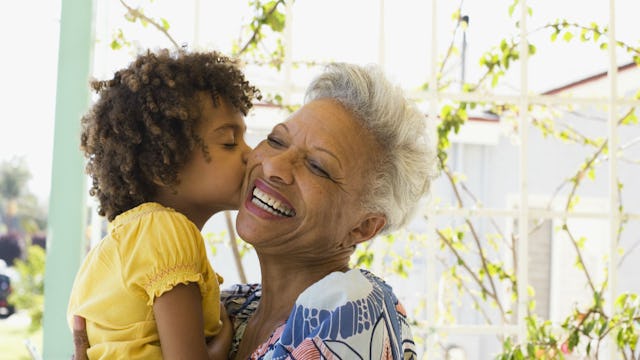Set Up That Sleepover: Kids Benefit From More Time With Their Grandparents

Quality time with grandparents helps kids view aging more positively
Grandparents are the best — they love your kids more than anything, and can’t wait to spend more time with them. But it turns out that in addition to the joys of cake for dinner, a lack of punishments, and treatment so good you wonder where these people were when they were raising you, there’s an additional benefit that kids get from spending quality time with their grandparents: it gives them a more positive view of the elderly.
A new study out of the University of Liege in Belgium found that children who said they felt “happy” or “very happy” when they saw their grandparents were less likely to believe in ageist stereotypes.
Researchers talked to 1,151 children between the ages of 7 and 16 about getting old, and what they thought of the elderly. They found four factors that made an impact on their views: gender (girls felt more positively about the elderly than boys), age (10-12-year-olds were the least ageist), their grandparents’ health (those with healthier grandparents had more positive views of the elderly and aging), and, most of all, the quality of their interactions (by “quality” they mean whether they were positive or negative experiences.)
It makes perfect sense that children with healthy grandparents who they enjoy spending time with would have more positive feelings about the elderly and getting old. What’s interesting is that quality was far more important than quantity, although the children with the most positive views overall were 10-12-year-olds who had positive interactions with their grandparents at least once a week.
It’s also interesting that their interactions with their grandparents influenced how they felt about all elderly people and about how they felt about growing old themselves. That’s some powerful grandparent juju, and something parents should keep in mind if their kids don’t get along with their grandparents. In that case, it might be valuable to make sure they’re exposed to some positive elderly role models (I find that a marathon of The Golden Girls is always a good thing regardless of the circumstance.)
“For many children, grandparents are their first and most frequent contact with older adults,” said Stephane Adam, one of the co-authors of the study. “Our findings point to the potential of grandparents to be part of intergenerational programs designed to prevent ageism. Next, we hope to explore what makes contacts with grandparents more rewarding for their grandchildren as well as the effects on children of living with or caring for their grandparents.”
Kids who get to spend good-quality time with their grandparents are lucky in so many ways. The fact that these experiences may benefit the rest of the aging population and encourage kids to be less scared of growing old themselves is the cherry on top.